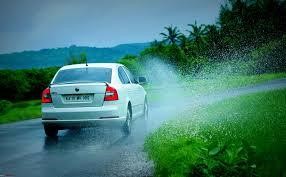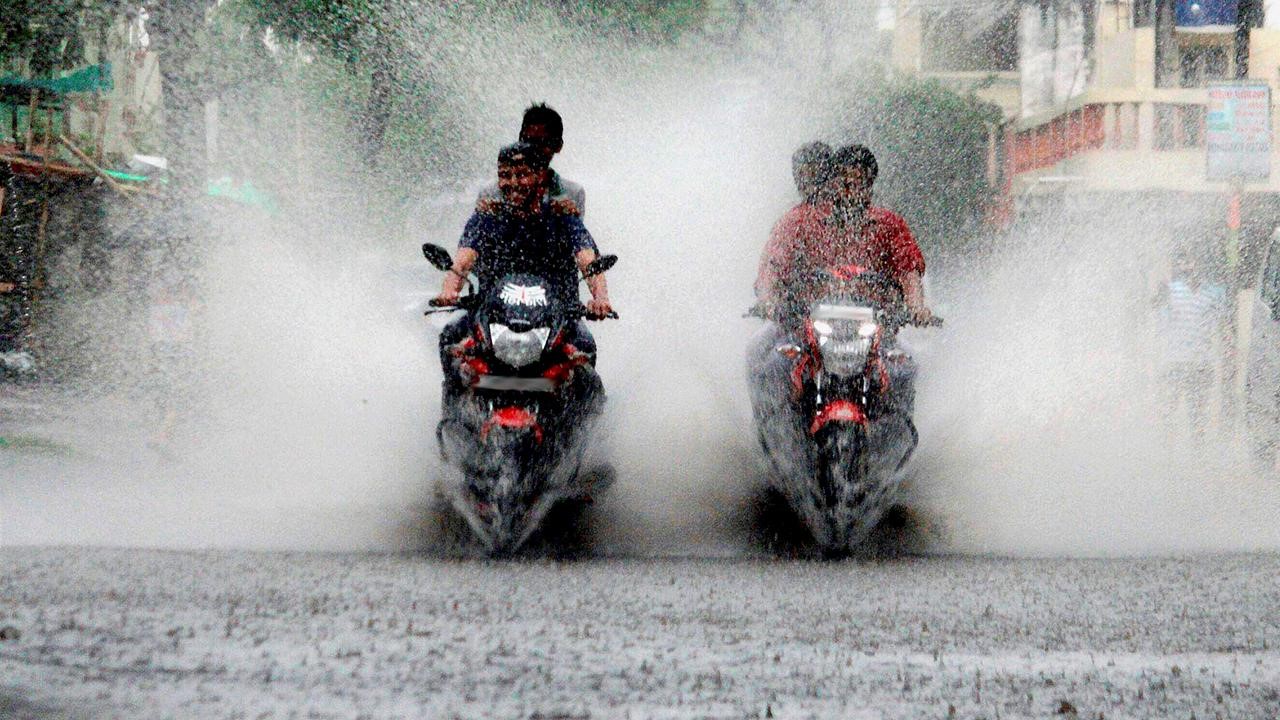General Insurance Blogs, Articles & Updates by - Magma HDI
Have us call you
- RENEW YOUR POLICY
- BUY NEW POLICY

6 Ways to Reduce Risk of Contracting COVID-19 While Commuting to Work
The end of 2019 had brought forward a deadly virus that is still haunting the world, the COVID-19. Since we are still lagging in getting a proper vaccine for this virus, the situation is causing more and more adverse effects, even fatality.
In the case of treatment of COVID-19, best health insurance in India covers pre and post hospitalization expenses, including in-patient and out-patient expenses. Yet it is best if we could prevent it from the first occurrence just keeping ourselves well protected.
COVID-19 might have paused our regular daily routine for a few days, but we are getting back on track with our professional commitments. In such cases, getting proper protection has become inevitable to keep ourselves safe.
So here are 6 ways to reduce the risk of contracting COVID-19 while commuting to work:
1. Using Personal Protective Equipment (PPE)
Whenever you step out of our house, you must gear up with proper personal protective equipment, like masks and a pair of gloves. This protects us from getting in direct contact with the virus by shielding our most prone parts of our body, like hands and mouth.
You should also carry an extra pair of disposable gloves and mask for an emergency. Try not to open PPE at all while you are outside. It would be best if you washed the mask properly in case it is reusable. This ensures our safety.
2. Using Sanitizer
The use of sanitizer is one of the essential precautionary measures. It would be best if you always carried a sanitizer while going out and use it whenever you contact any other substance or any other person. Sanitizers kill the virus before it starts harming our body. It is better to use sanitizer just before and after a meal is a must.
3. Eating Safe
Eating unpacked, and street food increases the chance of coming in contact with the virus. So, it is safe to either carry your food or any packed items. Food prepared in the house must be washed well before cooking.
You should only purchase foods from outlets that follow the proper protocols of WHO. Some of the best insurances of India encourage its policyholder to eat safe and eat healthily.
4. Maintaining Social Distance
Whenever you travel, you must maintain social distance. Keeping a safe distance from other persons reduces the chance of getting in direct contact with the virus. It would be best if you avoided public transports that are too crowded. Instead, travelling in private vehicles minimizes the chance of infection.
It would be best if you also kept a decent distance from people who are continually sneezing or coughing. Crowded places are always the den for spreading the virus. The Best Health Insurance In India insists its policyholders on maintaining social distancing.
5. Avoiding Any Physical Contact
Public places are prone to contamination by the virus. Please do not touch any unmanned items, walls or railings as that can increase the chance of coming in contact with the virus. So, before you get in contact with such places, it is a must first to disinfect the surface properly.
6. Spread Awareness
While travelling, if you find a person without wearing a mask, make him/her aware of the same. We must stand in a safe distance and insist others to maintain distance too. Being a responsible citizen, you must always spread awareness about the current situation. Not wearing a mask outdoors might result in legal charges and consequences.
Summing up
While travelling to your workplaces, you must always maintain the above steps. These will keep you away from coming in direct contact with the virus. Social distancing, using personal protective equipment and sanitizers are some of the crucial things you should practice regularly.The best health insurances in India always promotes all of the above steps for the betterment of their customers.

15 Simple Health Tips For Monsoon!
The monsoon is a welcome change for many from the scorching summer heat. It brings promises of new life with itself. Thus humans often greet this season with open arms.
But sadly the bacteria and viruses enjoy this season as well. So we need to keep an eye on our health and take the necessary precautions to stay safe. But with the growing number of diseases due to various viruses in this period, one should also consider health insurance plans in India to keep their family protected.
Here are a few simple health tips for the monsoon that every person must take up to stay fit and healthy.
1. Increased intake of Vitamin C as it fights against any deadly virus:
- Monsoon is the time where viruses and bacteria thrive the most.
- A rich vitamin C diet, including oranges and green vegetables, can help increase the immunity against such diseases.
2. Avoiding junk food:
- The streets are filled with puddles and potholes. These are home to a vast number of microorganisms.
- Street foods, which are sold openly on the streets, are often exposed to these harmful microorganisms.
3. Not storing stagnant water:
- Mosquitoes are born in stagnant water. They are carriers of a vast number of diseases.
- One must also ensure that drains are not clogged, and rainwater is not stored in any part of the house.
4. Adding disinfectants in bathwater:
- Most people like to walk in the rain. But bathing at least twice a day can do away with any health problems.
- Use of disinfectants in the water can protect from the various microorganisms and keep one fit.
5. Using ironed clothes:
- Clothes stored in wardrobes often get cool with the damp from rain and lack of sunlight. Wet moisture causes molds
- Ironing the clothes before wearing makes them free from these fungi besides giving a stylish look.
6. Having well-cooked vegetables and fruits:
- Fruits and vegetables skins are home to several germs.
- They need to be adequately washed in running water before cooking them to stay safe from water-borne diseases.
7. Enough sleep and exercise:
- 7-8 hours of sleep is mandatory for an individual to create immunity and prevent various diseases.
- Regular exercise can keep the body in perfect shape and build immunity against various diseases.
8. Avoiding touching the eye:
- Eye infections like conjunctivitis, dry eyes and corneal ulcers are common during these times.
- In case of any irritations, doctors should be consulted. There are some health insurance plans in India which can cover the cost if required.
9. Maintaining hand hygiene:
- Washing or sanitizing hands properly before having food is a must. It kills all the germs.
10. Precautions against mosquitoes:
- In-home, mosquito coils or tents should be used to stay safe from mosquitoes.
- Several health insurance plans in India now deal with diseases caused due to mosquitoes. Hence these should be considered.
11. Clipping nails:
- Bacteria and germs often accumulate underneath nails. So they should be clipped at regular intervals.
12. Protection against allergens:
- Allergies can become severe during this season.
- Wearing masks while going out and carrying anti-allergy medicines are a must.
13. Not using wet shoes:
- One should not be wearing wet socks and shoes as pathogens may grow.
- Keeping an extra pair of shoes might be beneficial.
14. Staying clear of damp indoors:
- Damp walls are home to the growth of fungi.
- People having asthma or breathing problems should stay away.
15. Keeping distance from sick people:
- Many people catch the flu or cold during this time. So it's better to keep a distance from them.
The monsoon usually lifts the spirits of many but often makes the health vulnerable. With some essential precautions, one can stay fit. One can even take the help of Health Insurance Plans In India so that even when you fall ill, you can deal with the situation effectively.

Family Health Insurance or Individual Health Plans – What to Choose?
Establishing life goals entail insurance plans, but that’s not a holistic confirmation to your investments. The next question would be - whether to settle for an individual or a family floater plan.
Insurers provide these variant coverages for their health insurance services. But what are the key differences? What should you choose? What are the benefits? All of which will be answered in the following paragraphs.
Know the difference
The literal meaning automates a difference which understandably leads you to think of the package claims.
- Individual health insurance is issued against a single person. So, if you were to propose insurance coverage for your entire family, you’d have to buy insurance respectively for each member. That’d provide an allotted sum dedicated to each individual under the insurance policy.
- But if you are looking into family insurance, all the members will be covered under one single insurance package. Unlike the former variant, family insurance has an allotment dedicated to the entire family, which is to be shared. So, if your family has two other members with an insured sum of 4 lacs INR, the cluster would be sharing the same amount. Thus, a health insurance policy for the family will only dispatch the stipulated amount irrespective of the individual requiring healthcare assistance.
How does it work?
A family insurance plan relies on the hypothesis or rather, the possibility of all members requiring medical assistance at the same time. So, if a family of three buys an individual plan of 3 lakhs for each member, a family floater plan of 8 lakhs can equally justify the needs.
How are the premiums determined?
The premium for family health insurance is determined based on the age of the oldest member. However, for individual plans, the only determining factor is the age of the member insured. The family plans tilt towards your affordability, especially for younger families. But if the oldest member suffers from a terminal or any immediate ailments, individual plans are recommended.
Comparative Analysis of Family vs Individual Health Insurance
- Individual health insurance is issued against a single person. So, if you were to propose insurance coverage for your entire family, you’d have to buy insurance respectively for each member. That’d provide an allotted sum dedicated to each individual under the insurance policy.
- But if you are looking into family insurance, all the members will be covered under one single insurance package. Unlike the former variant, family insurance has an allotment dedicated to the entire family, which is to be shared. So, if your family has two other members with an insured sum of 4 lacs INR, the cluster would be sharing the same amount. Thus, a health insurance policy for the family will only dispatch the stipulated amount irrespective of the individual requiring healthcare assistance.
- But if you are looking into family insurance, all the members will be covered under one single insurance package. Unlike the former variant, family insurance has an allotment dedicated to the entire family, which is to be shared. So, if your family has two other members with an insured sum of 4 lacs INR, the cluster would be sharing the same amount. Thus, a health insurance policy for the family will only dispatch the stipulated amount irrespective of the individual requiring healthcare assistance.
- Family insurance plans offer age-restricted renewals. So, if the oldest member were to breach the maximum threshold, the presiding members won’t be able to forward any amount prescribed by the policy.
- If a child migrates to an individual plan, eventually, the credit for their waiting period is lost.
- For a family plan, any member issuing a claim can nullify the No Claim Bonus or NCB for that fiscal year.
- Generally, kids and immediate dependents are covered in a family plan. But for cases where you’d want to include your in-laws or grandparents, individual plans remain their only plausible option.
Verdict
This is more of a strategy than a choice since you can opt a heterogenous plan, here’s what you can do:
- If your family consists of younger members,Family Health Insurance Policy will fare better for apparent reasons until the members cross their age threshold for the policy.
- For families without any history of chronic illnesses, the family plan suits them best. Moreover, they remain under a certain price bracket that provides financial convenience.
- But if you are someone at a higher risk of any significant illness, subscribe to individual insurance covers so that the entire family can rely on the sum insured in the family plan.
- If you have parents in the older age bracket, purchase individual insurance covers. This step will ensure you protect the NCB from being nullified in case your parents require serious medical expenses.
So, to sum it all up, younger families are recommended to buy a family cover while buying individual covers for members who are at a higher risk of requiring serious medical attention.

How to take care of your car during Monsoon?
All of us are preparing for the rainy season with our umbrellas and raincoats in place. While we are getting ready for the heavy rains, let us not forget to prepare our cars for the same.
Wondering why your car needs a bit extra care? It’s because the heavy rains have a terrible effect on your vehicle’s body. The dirt, mud, waterlogging, and massive jams are all bad for your car’s health. The water during the rain sticks to your vehicle resulting in rusting and electrical issues and has a corrosive effect on the car in the long run.
Many car owners miss out on essential tips necessary to take care of their vehicles during the monsoon weather.
Here are some useful tips for maintaining the good health of your car during the monsoon.
Tip 1:
- Make sure that you have perfectly running tyres on the road to have a safe ride.
- The right amount of tread is crucial for your care during monsoon.
- Shallow tread in tyres during monsoon can be risky and can lead to road accidents. Get your car insured from the best car insurance company in India for your safety.
- Also, keep a check on the tyres’ inflation regularly as low pressure will make it difficult for you to drive your car.
Tip 2:
- Get the brakes of your vehicle checked.
- Their proper functioning during monsoon is much more essential due to slippery roads and waterlogged streets.
- To maintain the excellent condition of brakes, make sure you regularly clean and, if required, replace the brake pads.
- Make sure they have required friction material, especially during the rainy season.
Tip 3:
- Maintenance of wipers and washers during monsoon season is of prime importance.
- Check and make sure that the wiper blades of your car do not leave behind any lines or smudges.
- Wiper blades tend to wear out fast. Get them checked before the monsoon season sets in.
- The rubber blades tend to crack during the summer season, making them ineffective during the monsoon season.
- Check the washer’s reservoir level and top it when the level is low or as and when required.
Tip 4:
- Water and electricity don’t go together, and we all are well aware of this fact.
- Patch up any exposed wiring beforehand to ensure that your car’s electrical is in good working condition.
- The life of your car’s battery too tends to decline if you are living in an area that receives heavy or regular rains. Get the battery replaced if required so that all the electrical components like headlights, wipers, etc., function properly.
Tip 5:
- Working headlights, tail-lamps, and indicators or turn signals are vital regardless of the weather.
- During monsoon, visibility is hampered, which requires your car’s lights to function well, making it easier for you to notice other road users.
- Test your vehicle’s lights by running them together. If you notice that they are getting dimmer or are inconsistent, get them replaced with new bulbs.
- Make sure they have required friction material, especially during the rainy season.
- Note that flickering lights are also an indication of a weak battery.
Tip 6:
- Do not allow water to sit on the body of your car, as this can harm its paint.
- You can use a thin layer of wax polish to prevent the body of your car. Alternatively, you can also use anti-corrosion sprays.
Make sure to keep these tips in mind to have a safe ride. Chances of accidents during monsoon are high due to slippery roads and reduced visibility. Get car insurance from the Best Car Insurance Company In India at the best possible price and enjoy your ride with your loved ones.

Four insurance covers you must have this monsoon
Monsoon brings us particular delights, after the scorching summer season, rain is the only respite we look forward to. But they are not so delightful when they leave a trail of plight.
Some of the problems revolve around viral or water-borne diseases, floods, property damage, and vehicle corrosion. So, how can you possibly save yourself from such financial setbacks, especially during monsoon? A combination of the right insurance policy can help you from getting attacked by such flailing financial setbacks. Here's a curated list of insurance policies that you can buy to stop burning a hole in your wallet.
Choosing a comprehensive health insurance policy
- Some of the common ailments of this season are malaria, dengue, viral fever, typhoid, chikungunya, diarrhoea, and hepatitis.
- However, insurance companies provide a holistic range of health insurance plans covering almost all of these diseases.
- To meet the rising number of requirements for specific medical treatment claims, insurance companies provide policies specific to diseases at a marginal cost which provides insurance against particular incidence.
- These policies can be specific or add-ons. For instance, dengue can be quite fatal during this time, and companies are offering retail plans for that particular disease.
- However, a comprehensive health insurance policy plan can be lucrative since they cover all the seasonal ailments holistically to alleviate financial distress.
- They also provide pre and post-hospitalization expenses for 60 and 90 days, respectively.
Buying a personal incident policy
Buying a separate personal accident plan for the owners of vehicles can protect you against any uneven eventuality. Potholes and foggy roads can be quite fatal for those who commute on their cars. Personal Accident Insurance will cover injury, permanent disability, and death, for which the entire assured sum is paid.
Subscribing to add-ons for enhanced vehicle protection
- Although third-party motor insurance is a compulsory buy for every vehicle owner, a comprehensive policy can also offer a variety of extra coverages. However, comprehensive motor insurance also has certain limitations; for instance, if rainwater damages your car engine, they are not likely to be covered. But there are exceptions, water if it doesn't get sucked inside would cause further damage - that is not covered in regular comprehensive policy.
- Add-ons like engine and gearbox protector, Zero Depreciation, and Emergency roadside assistance are some of the most popular insurance add-ons during the monsoon season.
- You can choose and compare to buy car insurance online, and to have the best possible fit for you, be sure to go through the exclusion and inclusion document to have an overview of policies you are about to buy.
Buying home insurance
- Torrential downpour or floods can be detrimental to your house, and If you are a resident of a place that is frequently flooded every year, then this insurance would make sense.
- The average premium of insurance such as this ranges between 5000 to 10000 INR, this is meagre and affordable as opposed to losing out your house.
- The insurance would cover any structural damage or content damage in your home. Even if you live in an apartment that is one the higher floors, there are issues like electrical damage and seepage for which you have to pay a hefty amount if not insured.
Verdict
If you are well protected in the month of monsoon, you will find it easier to have a sustainable life during this season. And, for financial and medical protection, insurance policies are the only saving grace.
With the right combination of insurance coverage for you, monsoon can be approached safely by you without feeling inhibited.

Precautions to Take For Your Bike in Monsoon
Monsoon prefaces an ideal fit for a biker’s dream for a planned respite out of the city hustle. Although the season is arguably the best one for bikers, it is also irreversibly lethal primarily due to torrential downpour and fog - that can create scenarios prone to accidents.
Can you get cover from bike insurance?
If you go through the available Bike Insurance Online India , you will find the comprehensive coverage benefits that do provide insurance against damages caused. Although there are variations to the two-wheeler insurance type, comprehensive two-wheeler insurance does cover for damages caused due to natural calamities, accidents, and any human-made crimes. Bike injuries are automatically provided against bodily injuries incurred by you, any third-party (victim), or property damages.
So, if you have a comprehensive bike insurance policy subscribed every year, any costs produced due to any mishaps would rid you of any unprecedented financial distress. Additionally, it also provides legal protection where it covers legal fines alongside a personal accident cover.
In what ways does the monsoon affect your bike?
Two-wheeler performance is likely to fluctuate during monsoon since monsoon has severe effects on most vehicles. The damages caused can be fatal and dangerous unavoidably.
Here are some problems bikers are likely to face in the month of monsoon:
- Engine and brakes suffer a breakdown
- Bike imbalance while encountering potholes causing severe damages
- Bikes skid and tires puncture
- Rain can be corrosive, forming rust and damaging vehicle exteriors like levers and chains, causing the vehicle to stop working
- Rain can be detrimental to headlights, tires, brakes, and also the air filter.
Tips to ensure rider safety during monsoon
- Rain and moisture are corrosive and can cause external damage to your bike. Although two-wheelers have rustproof bodies, the metal frames, however, aren’t. To propel protection against dampness, you can coat the metal frames with anti-rust protection paints.
- If you are parking your bike during monsoon, try looking for covered space. Try and avoid rainwater since the water is collected inside, can cause severe electrical disruptions.
- Travelling while it rains hardly covers your ride, but you can provide maximum protection with rain-proof covers. They can be useful even when you don’t find a shaded parking space.
- Water tends to rust hinges, lever, and chain, which can be detrimental to vehicle movement. You can oil these parts to allow mobility amongst these parts and keep your two-wheeler function. Additionally, coat your battery terminals with grease to stop moisture percolating inside.
- Brakes can get unresponsive due to water damage, making them slippery, jammed, or rusty. If these conditions persist, it can result in undue fatality. Also, try not to hit your brake too hard when riding on a slippery surface since it will cause your bike to skid on the surface, causing some severe damages.
- Keep checking your tires and see if they still can maintain grip while standing on wet surfaces. If you notice tire balding, consider changing them immediately. It is also recommended that you keep the PSI level lower than the prescribed level.
- Moistures keep causing air filter blockages. You can keep cleaning the air-filter periodically to avoid any such discrepancies.
- Lighting is essential, especially when you are riding through a torrential downpour. Be sure to check the lights before heading out. Alternatively, you can also put reflective stickers to help other drivers see you on the road when the light and visibility is low.
- The motor insurance act makes it mandatory to have basic insurance. But try to buy a comprehensive two-wheeler policy that covers protection against third-party liability charges, theft, personal damage, and vehicle damage.
Verdict
As the adage goes, “prevention is better than cure”, the best follow-up for you to do is deploy these precautionary measures to avoid any uncanny instances happening to you and your vehicle.

Top 9 Foods To Be Included In Your Diet For A Safe Monsoon
Monsoon often arrives as a welcome relief to many. The scorching summer heat and humid tiring days are replaced by new hope and joy as the rain comes with new promises of life.
But monsoon also brings with itself a large number of diseases like dengue, malaria, cold and flu. Unhealthy eating habits can make people vulnerable to such ailments. One should also look towards health insurance policy renewal to keep their family safe in case of emergencies.
Health insurance policy renewals are increasing day by day. So immunity is the key to successfully prevent such diseases, which one can only attain following a healthy diet. Some such items are given below.
1. Turmeric:
- It can be used as an antiseptic, antiviral, antifungal and antimicrobial.
- It contains curcumin which helps in providing immunity and taking care of the health
- It is often called the golden spice of the kitchen. One can drink it as Haldi-doodh during bedtime or mixed with food as turmeric powder or freshly grated with other items.
1. Fermented food:
- Probiotics are good bacteria which, when intaken can live in the human intestinal tract and can help in fighting against the harmful germs entering the body.
- Fermented foods like yoghurt, buttermilk, pickled veggies are a must in the diet.
1. Lemons:
- Lemons have Vitamin C, which is very important during this period.
- It helps in building immunity against infections and helps in digesting quickly. It also provides nutrition to the flesh.
1. Masala Tea:
- Cardamom and cloves are essential to guard against infections and fight against diseases like cold and flu.
- Cinnamon has a lot of ethical medicinal values.
- Mixing these along with spices like ginger, black pepper and tulsi leaves with tea can be a natural immunity-booster
1. Garlic:
- It fights against the viruses causing flu and cold and boosts the immune system.
- Having garlic regularly can increase the T cells in the blood, which helps in fighting against such viruses.
- Garlic contains allicin. Raw intake of garlic changes it to allicin, which is a crucial compound helping to boost immunity
1. Dry Fruits:
- Nuts like dates, almonds, walnuts are rich in vitamins and minerals and must be an integral part of the diet.
- They are rich in riboflavin, niacin and Vitamin E, which helps in boosting the immunity.
- Vitamin E is a powerful antioxidant which helps in keeping the body fit and healthy.
1. Spinach:
- Spinach is a good source of Vitamins A, C and E. It also contains beta carotene, folic acid and fibre.
- These nutrients and antioxidants help the body to build up a robust immune system and be fit and healthy.
- They should be washed thoroughly before cooking.
1. Bitter gourd:
- This is not an item that is liked by many but is exceptionally crucial for the diet.
- They are rich in Vitamin C and help in fighting against many harmful viruses.
- One can have them boiled, fried or stewed with other vegetables.
1. Ginger:
- It is a herb having antiseptic, antibiotic and antimicrobial properties. It is also rich in antioxidants.
- It is instrumental in boosting immunity and fighting against diseases like cough and cold, sore throat, and body ache.
- One can have it by mixing it with tea, milk or soups.
Maintaining a healthy food habit can keep one fit and healthy, and then health insurance policy renewal will not be the primary concern.
One should avoid having street foods and carbonated beverages during this period. The drinks lower the minerals’ levels and enzyme activity of the body. Street foods are often left open to many harmful microorganisms. Sea fishes breed during this time. So these should be avoided as much as possible. Besides, one should also look for Health Insurance Policy Renewal to cover the expenses if needed.

Road Safety Tips for Two-wheelers
The majority of road accidents in India are those driving two-wheelers, taking the lives of thousands of people every year. It is a common sight to notice a two-wheeler rider cutting past the traffic, riding on the pavements, or finding a way even in small lanes.
We know that people with two-wheelers love speed and want to reach anywhere faster by avoiding traffic. At the same time, you need to take care of your safety when on the road. Apart from following the below-mentioned tips you can follow to ensure your safety on the road, invest in the best Two-Wheeler Insurance In India . Buying two-wheeler insurance will help you cover the damages in case of any mishap in the future.
Here are some safety tips you must follow:
Tip 1: Wear a helmet
- Invest money in buying a good quality helmet for your protection. It will help in preventing head injuries and will keep you safe in case of an accident.
- Don’t just wear the helmet to prevent yourself from being fined; wear it for your safety. Don’t forget to fasten the straps to keep it in its place.
- Buy helmets with a plastic sheet. This will help you in protecting your eyes while driving.
Tip 2: Control your speed
- The speed of your two-wheeler should not exceed what you can control.
- It is often seen that road accidents occur when the rider couldn’t control the vehicle’s speed on time. Hence, don’t ride too fast to control.
- Maintain a safe distance from other vehicles to avoid accidents. Buy a good two-wheeler insurance policy to protect yourself.
Tip 3: Check your vehicle before riding
- It is a thumb-rule to check your vehicle before you take it on the road.
- Check that the breaks, headlights, indicators, and horn are all in working condition.
- Make it a point to ensure regular servicing of your two-wheeler from an authorized service centre.
Tip 4: Avoid riding in adverse weather conditions
- Try to avoid riding your two-wheeler in lousy weather conditions. Until and unless it is necessary, avoid being on roads in harsh weather conditions.
- An accident’s chances are high in adverse weather conditions like during heavy rains and foggy weather in winters.
- Use anti-reflective stickers on your vehicle or helmet to make yourself visible to other riders.
Tip 5: Look for hazards and obstacles on the road
- Be attentive while riding your two-wheeler.
- Look for garbage piles, pot-holes, speed breakers, oil spills, and stray animals while driving.
- These obstacles or on-road hazards can pose a significant threat to your safety if not paid attention.
Tip 6: Obey Traffic Rules
- Do not try to break the traffic rules. They are designed for your safety and hence should be obeyed.
- Don’t drive when you are under the influence of alcohol.
- Don’t try to over-speed or overtake. Avoid so, especially in case of heavy vehicles.
Tip 7: Invest in two-wheeler insurance
- Investing in two-wheeler insurance is always the right decision.
- In case of any damage or loss during an accident, it will come to your rescue and will secure you against any monetary cost incurred.
- Buy the best two-wheeler insurance in India after comparing different policies and choosing the best for you.
- Also, note that third party two-wheeler insurance is mandatory in India.
By following some simple safety measures, you can avoid accidents and injuries that can be life-threatening. These tips will ensure the safety of you and your loved ones. Buy the best two-wheeler insurance for increased security.


